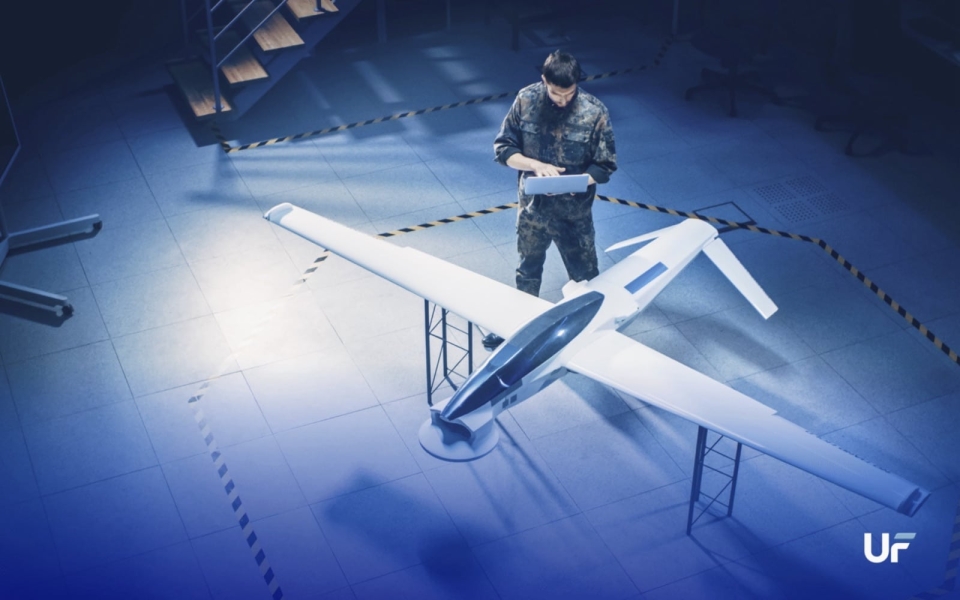Unifly Joins European Defence Agency Project To Standardize Military Drone Risk Assessment

Unifly, a Terra Drone subsidiary and global leader in UAS Traffic Management solutions, has joined a European Defence Agency (EDA)-led initiative to harmonize pre-flight drone risk assessment standards across Europe’s defense and security operations. The MIL-UAS-SPECIFIC 3 project aims to streamline the currently fragmented approval processes that drone operators face when conducting high-risk missions like beyond visual line of sight (BVLOS) flights and operations over populated areas.
The standardization effort addresses a critical challenge: European countries currently use different risk assessment frameworks for defense and security drone operations, creating costly barriers for cross-border missions and increasing administrative burdens. By establishing common standards, the project will enhance safety, improve interoperability between nations, and reduce preparation costs for military and public safety drone deployments.
European Defence Drone Operations Face Regulatory Fragmentation
Defense and security agencies across Europe increasingly rely on drones for disaster response, border security, and military operations. However, each country maintains its own risk assessment standards, making it difficult for operators to conduct missions across national boundaries. High-risk operations such as BVLOS flights require special authorizations from national authorities, with application processes that demand advanced technical expertise and can take weeks to complete.
The EDA-led project tackles this inefficiency head-on. According to the official announcement, harmonizing risk assessment standards will facilitate smoother cross-border operations while maintaining strict safety protocols. This becomes especially important as military and security agencies deploy drones for missions over populated areas, where precise risk calculations are mandatory.
Unifly Leverages SORA Expertise Through Italian Subsidiary
Unifly’s participation in the project centers on its recently acquired subsidiary, EuroUSC Italia, which joined the Terra Drone family in May 2025. EuroUSC Italia specializes in drone flight approvals and regulatory compliance, with particular expertise in the Specific Operations Risk Assessment (SORA) framework—a methodology adopted by more than 40 countries including EU member states, the United Kingdom, Canada, Australia, and the United Arab Emirates.
The Italian advisory firm has developed proprietary software that automates complex risk assessment applications, streamlining what traditionally requires extensive manual calculations and regulatory knowledge. This digital approach will form the foundation for Unifly’s contributions to the EDA project.
In the project’s preliminary phase, Unifly already defined risk requirements for air and ground operations, proposed a regulatory update roadmap, and developed a prototype online risk assessment tool. Moving forward, the company will refine these requirements to incorporate defense-specific needs, enhance the tool’s networking capabilities, and integrate geographic datasets like population density information from the European Union Agency for the Space Programme.
Defense-Specific Safety Requirements Drive Tool Development
Unifly’s planned contributions include upgrading the online risk assessment platform with improved data integration and leading validation exercises and workshops across participating nations. The company will work directly with national authorities and drone operators to ensure the new standards translate into practical, usable processes.
The integration of external datasets represents a significant advancement. By connecting the risk assessment tool to real-time population density maps and other geographic information, operators can make more accurate safety calculations for missions over varying terrain and settlement patterns. This capability becomes essential for defense operations that may span rural borders, urban environments, and critical infrastructure zones within a single mission profile.
Terra Drone, which acquired a majority stake in Unifly in July 2023, has been expanding its UTM capabilities globally. The Japanese company also invested in U.S.-based Aloft Technologies in February 2024 and listed on the Tokyo Stock Exchange in November 2024, where it secured the top spot in global drone service provider rankings for 2024.
DroneXL’s Take
The EDA’s push for standardized military drone risk assessment reflects a broader trend we’ve been tracking: the convergence of civilian and defense drone regulations. Earlier this year, we covered Unifly’s participation in the ENSURE project, which focuses on integrating drone traffic with traditional air traffic management for civilian operations. Now we’re seeing parallel efforts in the defense sector.
This matters because military and security agencies often pioneer operational capabilities that eventually filter down to commercial applications. Standardized risk assessment tools developed for defense BVLOS missions could accelerate approval timelines for commercial operators conducting similar flights. The bigger question is whether these European standards will influence frameworks outside the EU, particularly in regions where military drone adoption is accelerating faster than regulatory development.
Terra Drone’s strategic acquisitions—Unifly, EuroUSC Italia, and Aloft Technologies—position the company uniquely at the intersection of UTM technology and regulatory compliance services. As drone operations scale globally, the ability to navigate complex approval processes may become as valuable as the hardware itself.
What do you think? Share your thoughts in the comments below.
